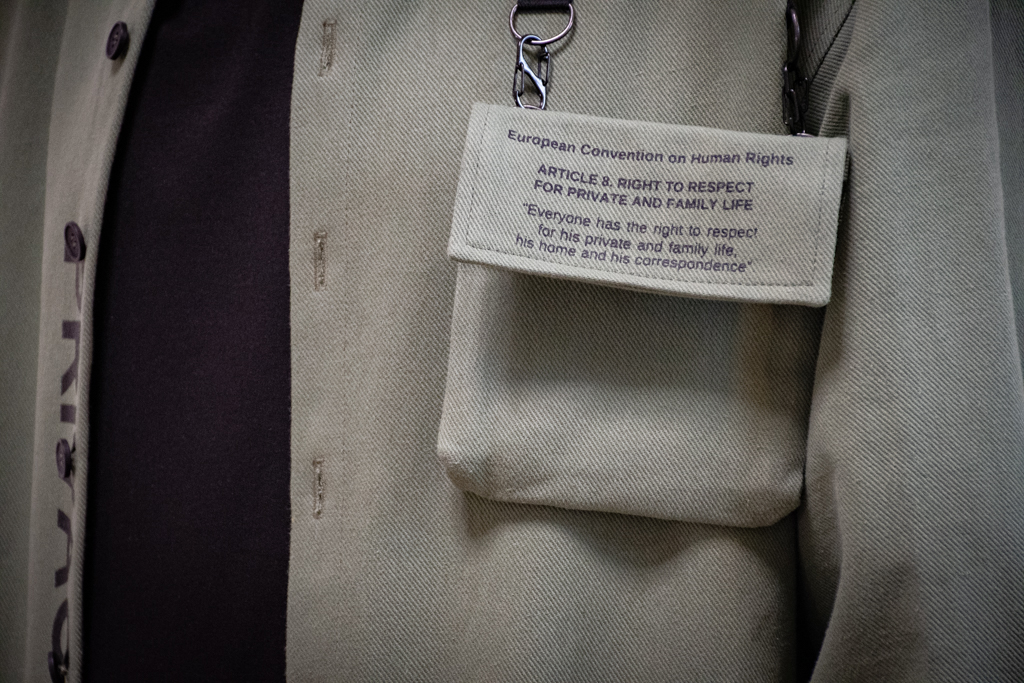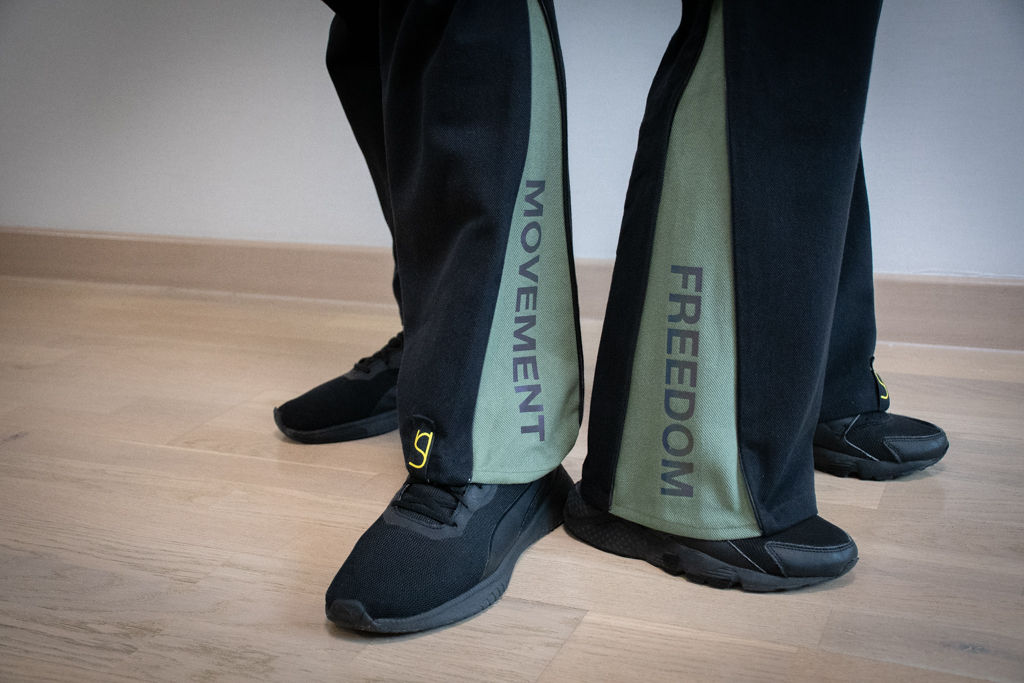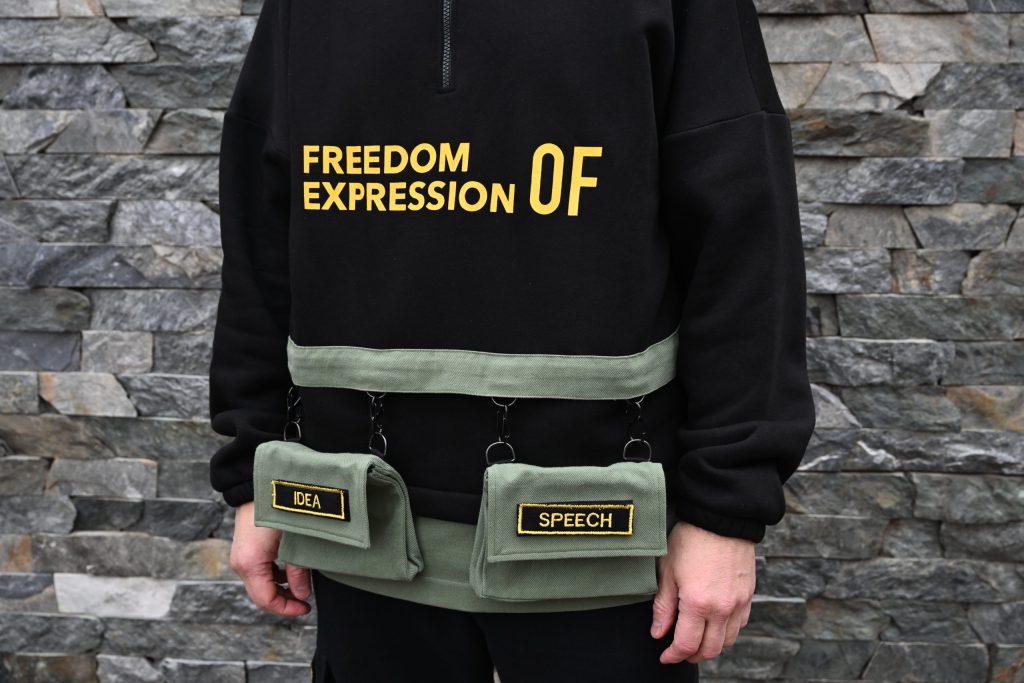What are human rights? What principles and concepts shape the modern concept of human rights? Let’s try to understand why human rights are the accepted measure of limiting democratic state power.Let’s start with the fact that we all have certain needs and values. Human rights originate precisely from such moral categories and common needs.If we think about what is most valuable to each person, we will not get the same list, as each person is unique, with their own way of life, views, and beliefs, attitudes towards the surrounding world depending on the traditions and concepts in which they were raised. However, usually, among this list of values, we encounter a significant number of points identical for each person.First of all – this is life itself, because the fact of biological existence – life – is primary to any life situation. This fact is self-evident and usually does not cause surprise. Equally undeniable is the need for individuality, even if not always conscious, to have certain individual views and beliefs, and if a person is deprived of the opportunity to freely choose and profess them, we will have a situation of incomplete life, a sense of inability to be a full member of society.However, not all values and needs are human rights. One reason for this arises from the principle that if a person has a right, then the state has an obligation to guarantee this right. Guaranteeing means that it simply will not hinder or will take action if they are necessary for the realization of this right.Human rights, unlike some other values and needs, are universal and are not acquired but belong to every person from birth. “All human beings are born free and equal in dignity and rights…” says the first article of the Universal Declaration of Human Rights. Human rights are universal. They belong to every person anywhere and in any circumstances, regardless of social status and any differences.There is an opinion that since many societies have their own cultures, traditions, and structures, human rights cannot be universal for all. Kofi Annan, who was Secretary-General of the UN from 1997 to 2006, said about this: “However, who can argue that we all hate violence? Have you ever heard of a free person demanding freedom? Have you ever heard of a slave advocating slavery? Have you ever heard of a torture victim approving torture? (…) Throughout history and in all cultures, tolerance and mercy have been ideals of government and human behavior. Today, we call these values human rights.”Human rights are inalienable. Most of them can be restricted under certain circumstances, but they cannot be deprived. Even a person cannot waive them. It is impossible to make a contract and give them up. The state cannot take them away, even by enacting a law. They just exist… No circumstances or conditions to have human rights. It is enough just to be born a human…Human rights are individual. They cannot be collective simply because they belong to each individual – an individual. Even when the problem concerns a whole group of people, each person has their own particular situation. Each of us, being in the same situation, feels differently. This depends on personal qualities and differences. A person with a disability who can only move with the help of a wheelchair may feel humiliated, discriminated against, unable to enter a courtroom – while another person feels nothing similar.Analyzing human rights issues related to a group of people, we still mean the rights of each individual representing this group. For example, talking about the rights of national minorities, we mean the rights of specific representatives of certain national minorities. Talking about the rights of vulnerable groups – we also talk about the rights of each individual.All this is particularly important in terms of protecting human rights. Systemic problems usually concern not only one person but many others as well. But sometimes, making claims and fighting for one’s rights from the perspective of just one person can improve the situation for the better for the entire group of people affected by this problem.
Dignity
Finally, human rights are not something that are asked for or traded. It is something that is demanded as due by nature.
As Polish scientist and human rights defender Viktor Osiatynski said: “The ability to demand is an important component of human dignity. The protection of dignity, in turn, is one of the main functions of human rights.”
“Taking into account that the recognition of the inherent dignity and of the equal and inalienable rights of all members of the human family is the foundation of freedom, justice and peace…” – these are the opening words of the Preamble to the Universal Declaration of Human Rights.
Thus, the authors of the Declaration lay the foundation for the concept of human rights, based on the notion of human dignity, which is inherent to every individual from birth.
Human dignity is a kind of starting point from which the concept of human rights is built. It cannot be precisely defined, but it can be felt. Every person possesses it. It is a kind of “litmus paper” that can indicate possible violations of human rights. When we feel humiliation, pain – that’s when human dignity suffers.
For a better understanding of this important concept in the human rights framework, Marek Nowicki, a well-known Polish human rights activist, distinguishes between human dignity and personal dignity. Personal dignity, he says, is close to the concept of honor. If we do a good deed, our personal dignity increases. If we commit an immoral act, personal dignity suffers. Human dignity, on the other hand, does not depend on our actions. “It belongs to both a newborn who has yet to do anything good or bad in life and the greatest criminal,” said Marek Nowicki in his lecture. The punishment for a criminal sitting in prison lies in the restriction of freedom and many other rights and freedoms. But that does not mean that a person can be subjected to torture or humiliation.
Freedom
Recognition of human dignity is the foundation, a necessary condition for freedom. Freedom is another fundamental concept in the human rights framework. However, how do we understand the concept of “freedom”? For example, during the nationwide survey conducted in 2017 (“What Ukrainians Know and Think about Human Rights: Nationwide Survey” conducted periodically), freedom was ranked first in the assessment of various values by the Ukrainian population as the most important for human rights. 80% of respondents chose it among the main values. However, one-third (30.3%) of the same survey participants who rank “freedom” as the first value in the value system are willing to give up some of their rights and civil liberties in exchange for their own well-being. Another third (35.4%) chooses the option that they are willing to endure certain material difficulties for personal freedom and guarantees of respect for all civil rights. About the same number of respondents (34.3%) found it difficult to choose one of the options.
It seems that people put different meanings into the concept of freedom. For some, freedom is inseparable from prosperity because from this point of view, to feel like a free person, one needs to have a certain level of material well-being. For someone, freedom is the opportunity for free choice, independent decision-making. Someone feels like a free person when they do not feel dependent on material goods.
“He who is willing to give up his freedom in order to gain temporary security deserves neither freedom nor security,” said American scientist, physicist, statesman, diplomat, and publicist Benjamin Franklin. In the concept of human rights, freedom, interpreting the statement of the Polish scientist Viktor Osiatynski, protects the “…autonomous sphere that no force can interfere with…”
Different philosophical approaches to understanding the concept of “freedom” in the context of the role of the state in ensuring it have historically formed. Polish human rights activist Marek Nowicki outlines these two approaches as “freedom from the state” and “freedom through the state.”
In the approach of “freedom from the state,” the role of the state is reduced to that of a protector. People agree to share their income with the state, including paying taxes, so that the state takes care of their protection and security. This is where the role of the state is limited. In all other matters, the state should not interfere and hinder individuals in their autonomy and personal aspirations.
The “freedom through the state” approach expands the role of the state and endows it with the functions of a kind of guardian who has a fairly wide range of positive duties to ensure happiness and a better future for individuals. The main risk of this approach is that the state sometimes tends to take care to the extent that it invents what exactly we desire.
Currently, these two approaches are expressed in the concept of human rights in the existence of both “negative” (guaranteeing non-interference) and “positive” (guaranteeing the creation of conditions, providing specific goods) state obligations.
Freedom, as a value, as a principle in the human rights concept, urges civic responsibility. After all, if I want not to be hindered, then I take responsibility for my fate and the consequences of my actions for others.
“Freedom means responsibility. That’s why most people are afraid of it,” said the famous English playwright George Bernard Shaw.
Equality
Equality, along with the concepts of dignity and freedom, also lies at the foundation of the human rights concept. At the same time, the philosophical understanding of equality varies greatly for different people.
Some perceive equality as equality of goods – everyone should have the same amount of values and resources because all are equal. For some, inequality is inevitable, as a kind of law of nature.
French lexicographer and poet, known as the editor of the Universal Dictionary of the French Language Pierre Boiste, sees in equality a threat to freedom: “Where everyone is equal, no one is free.”
Many examples can be cited of different views on worldviews’ concepts of equality.
The concept of human rights, however, is a system that sets minimum standards. Figuratively speaking, it is a “floor level” – one cannot go below it. In this sense, equality is associated with equality in rights and equality before the law. And the minimum standard is the prohibition of discrimination.
“Everyone is entitled to all the rights and freedoms set forth in this Declaration, without distinction of any kind, such as race, colour, sex, language, religion, political or other opinion, national or social origin, property, birth or other status” (Article 2 of the Universal Declaration of Human Rights).
Limitation of Human Rights. Mechanisms for Protecting Human Rights
“Freedom consists of the ability to do anything that does not harm others. Thus, the exercise of the natural rights of each individual has only those limits that ensure other members of society the enjoyment of the same rights. These limits can only be determined by law,” as stated in the documents of the French Revolution (Constitution of France, September 3, 1791, Article 4).
Human rights can be limited. The state establishes limitations when there is a conflict between the realization of one person’s rights and the rights and freedoms of other individuals, when it is necessary to protect values that represent an important public interest.
However, in order to avoid situations where the state abuses such powers, limitations must be lawful.
All rights and freedoms may be subject to limitations, except for freedom of thought, freedom from cruel and degrading treatment and punishment, and freedom from slavery. These rights are usually referred to as “absolute.”
Finally, it is worth noting that human rights would be mere declarations on paper if mechanisms for protecting human rights did not exist. Each state has its own national and international human rights protection systems.
Overall, all the principles and concepts of the human rights concept work to ensure the functioning of three elements, which make this concept complete, as Victor Osiatynski aptly expressed: “firstly, any authority has limiting frameworks; secondly, every person has their autonomous sphere, which no force can interfere with; thirdly, every person, in defending their rights, can make claims to the state, demand the observance of their rights.”
More about the fundamentals of the concept, history, and philosophy of human rights can be found at this link
Share stories about human rights and get acquainted with the stories that others send in our community! This way, we can advance human rights and create a society where human dignity and the values of freedom and equality are respected.
Send your stories here … We will post them on our portal ….
Read, listen to, and watch the stories of others here ….





